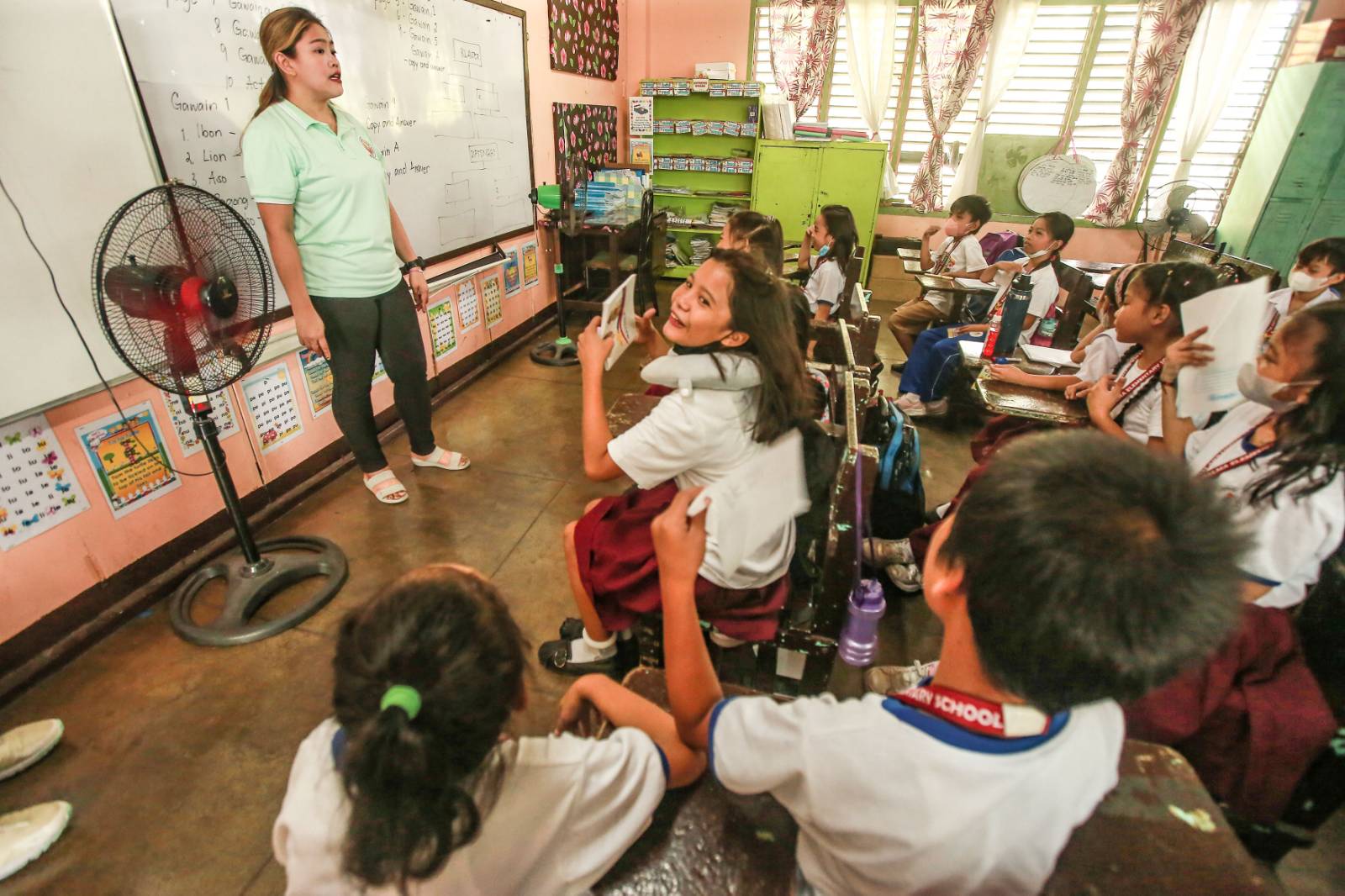Group calls for 'uniformity' of class adjustments, learning modalities amid extreme heat
As schools grapple with the suspension of face-to-face classes due to hot weather, a group of teachers on Friday, April 26, called for the implementation of a “unified policy” on class adjustments as well as learning modalities.

"As we near the end of the current school year next month, the education sector is still grappling with persistent challenges," said the Teachers’ Dignity Coalition (TDC) in a statement.
Specifically, TDC pointed out that implementing alternative delivery modes (ADMs) aimed at addressing the impact of extreme heat in the county has been “quite challenging.”
TDC noted that local government units (LGUs) and Department of Education (DepEd) field offices, not only in Metro Manila but in other regions as well, have implemented a variety of Alternative Delivery Modes (ADMs) to “mitigate the impact of extreme heat on children’s schooling.”
Citing its monitoring, the group said that some LGUs and school divisions have adopted alternate class schedules for two to three days a week, while some have imposed morning-only classes.
In some schools, TDC noted that the traditional five-day classes or even extended classes to Saturdays are implemented.
“Such disparities, while understandable, underscore the need for standardized protocols, at least in Metro Manila, a densely populated but geographically compact region, which is the smallest in terms of land area,” TDC said.
“Thus, the heat index in the extreme south, Las Pinas City, is likely similar to its northern counterpart, North Caloocan City,” the group added.
TDC also raised the issue of discrepancy in adherence to DepEd Order No. 37, s. 2022, which stipulates that teaching and non-teaching personnel should not be required to report to work during the suspension of face-to-face classes, except for essential duties.
The group said this case is not only happening in Metro Manila but also provinces.
“We urge the regional director of the DepEd-NCR and all the other 15 regional directors of the DepEd to issue directives to their respective areas to strictly follow the rules, as the practice of physical reporting not only violates the DepEd Order but would also put their teachers and employees in danger,” TDC said.
The group cited that DepEd Order No. 37, s. 2022, serves as a framework for class suspension during emergencies, disasters, and calamities, prioritizing the well-being of learners and personnel.
“Its application extends to a variety of scenarios, including extreme weather conditions such as heat or El Nino, as confirmed by subsequent memoranda and advisories issued by the DepEd Central Office,” TDC stressed.
To address these concerns, TDC called for a “clear directive” to all Schools Division Superintendents (SDSs) and school heads of the entire DepEd system to refrain from mandating physical reporting during the suspension of face-to-face classes, except for essential tasks.
TDC said that active engagement between the DepEd offices and the leadership of Local Government Units (LGUs) in provinces or regions, or with the Metro Manila Council (MMC) or the Metro Manila Development Authority (MMDA), in the case of the NCR, is also needed to ensure a unified policy on adjustments to learning modalities.
Moreover, TDC said that the support of the DepEd Regional Offices, Local Government Units (LGUs), district representatives, and Regional Development Councils (RDCs) to the proposal to revert to the old school calendar, which places school breaks in the hottest months of April and May, starting from June 2025 for the 2025-2026 school year, is also very crucial.
“Fulfilling these requests would greatly help our students, teachers, and other education stakeholders who are currently perplexed by the various alternative delivery methods of learning used in their localities or regions,” the group said.
RELATED STORY:
https://mb.com.ph/2024/4/25/dep-ed-face-to-face-classes-suspended-in-7-188-schools